FORT JACKSON, SC -- The Officers' Club was transformed into an international hangout May 11 as the Soldier Support Institute hosted a reception for international military students and their sponsors.
Military students from about 50 countries study at Fort Jackson throughout the year, and currently 29 students from 18 countries are on post. The SSI's International Military Student Office matches incoming students with a civilian or military sponsor to give them a broad experience during their time in the United States.
"What we're tasked for and funded for are to give the international students the official look at America. We can take them on official tours. We help them understand how the Army and the U.S. government work," said Brig. Gen. Mark McAlister, commanding general of the SSI. "But everybody understands that there's a whole different side to America. They get with the volunteers the opportunity to go into typical American homes and do typical American things like go bowling or go to the movie theater or go ride bikes - just what a normal American family does with their free time. So it shows the full picture when you combine what we do officially and then what the volunteer sponsors do with these officers and noncommissioned officers to give them a full, really honest view of what American life is like."
South Korean Maj. Yangwoo Woo, a student at the Financial Management School, is in the United States for the second time. He said that having a sponsor helped him during his first visit five years ago.
"Even though the culture between Korea and America is different, I could adapt (during my first visit) because the Americans helped me when I had any trouble," Woo said. "Even though I had some concern about the culture shock, I could overcome (it) easily. I felt (the people's) kindness."
Some of the sponsors, like Flordeliza Ripley, a DA civilian with Family and Morale, Welfare and Recreation, and Master Sgt. Fred Bueno, with the Installation Chaplain Office, sponsor students from their native countries. Both Ripley and Bueno are Filipinos who immigrated to the United States as teenagers. Bueno draws on his experiences as an immigrant in dealing with the students.
"I know the feeling to go into an area with unfamiliar customs where the culture is just different," he said. "I'm trying to put myself into their situation. I can only imagine how hard it is."
Bueno and Ripley said they welcome the students to their homes and invite them to take part in activities like gatherings and family outings.
"Hopefully, (when they get home) they're going to change the minds of others who may have a negative (opinion) of America and turn it into a positive," Ripley said.
Croatian Capt. Vlatka Jakupec said that studying at the Financial Management School is interesting, but that she really enjoys learning about the United States during her first visit here.
"We have a similar finance system in Croatia, but we have different laws. Much of what I learn here I can't implement in my country, but I saw some things that could improve our system in budgeting," she said. "I'm more interested in (the) American lifestyle, because it's new for me. It's one thing what you see on TV and totally different when you experience that in life."
McAlister said the international students chosen for the program are future leaders in their country's military and that building a positive relationship between the students and Americans is the goal of the program.
"This program really works because of what the volunteers do," he said. "We can't say, 'Thank you' enough to all of the military and civilian volunteers who help give each student the full picture of what American life is about."
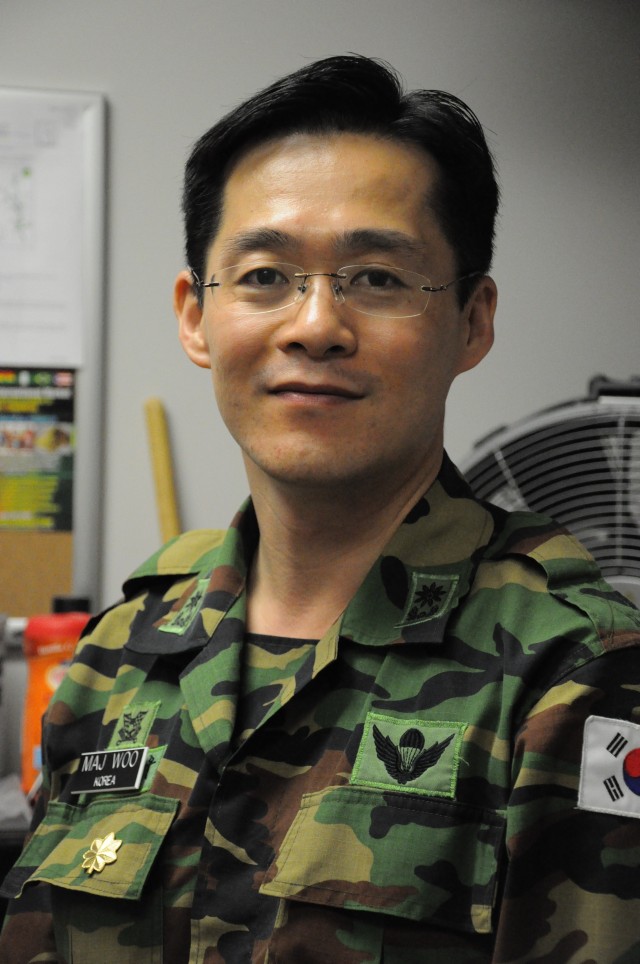
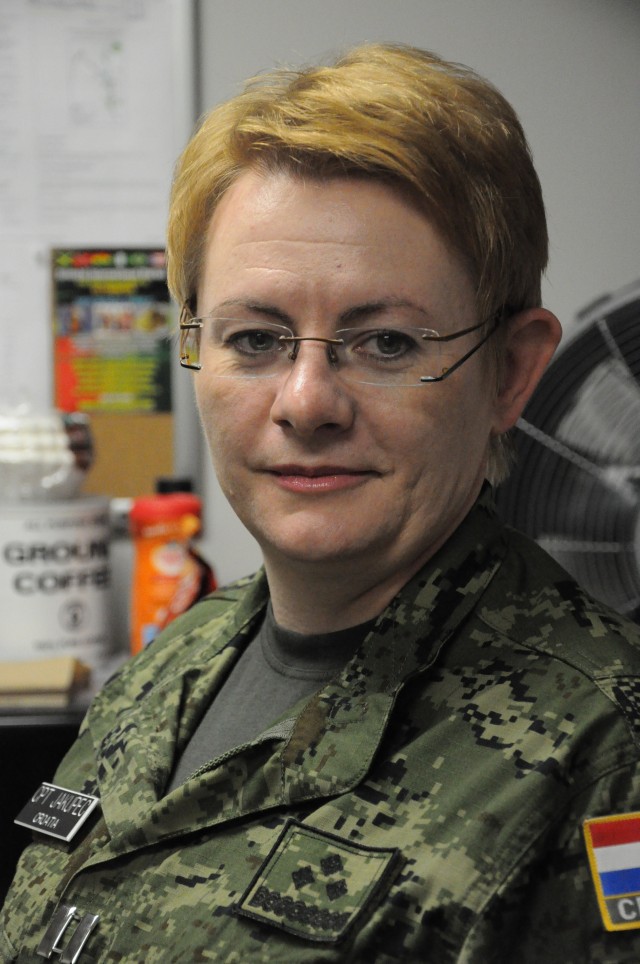
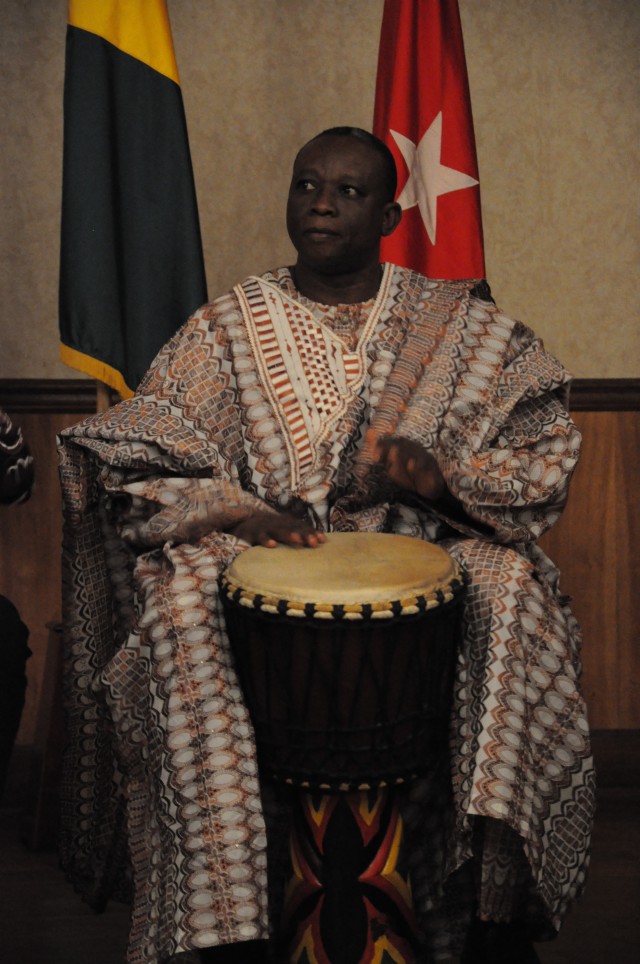
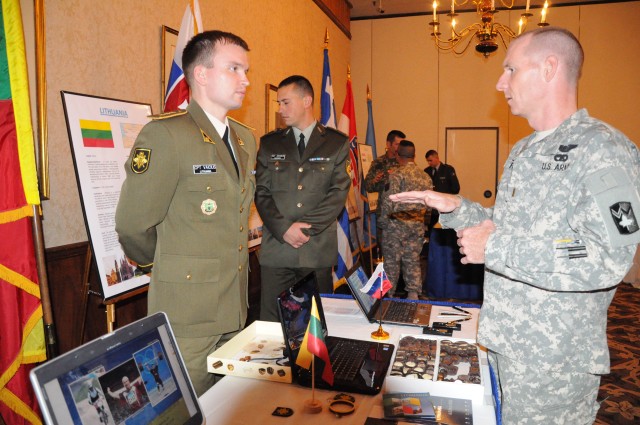

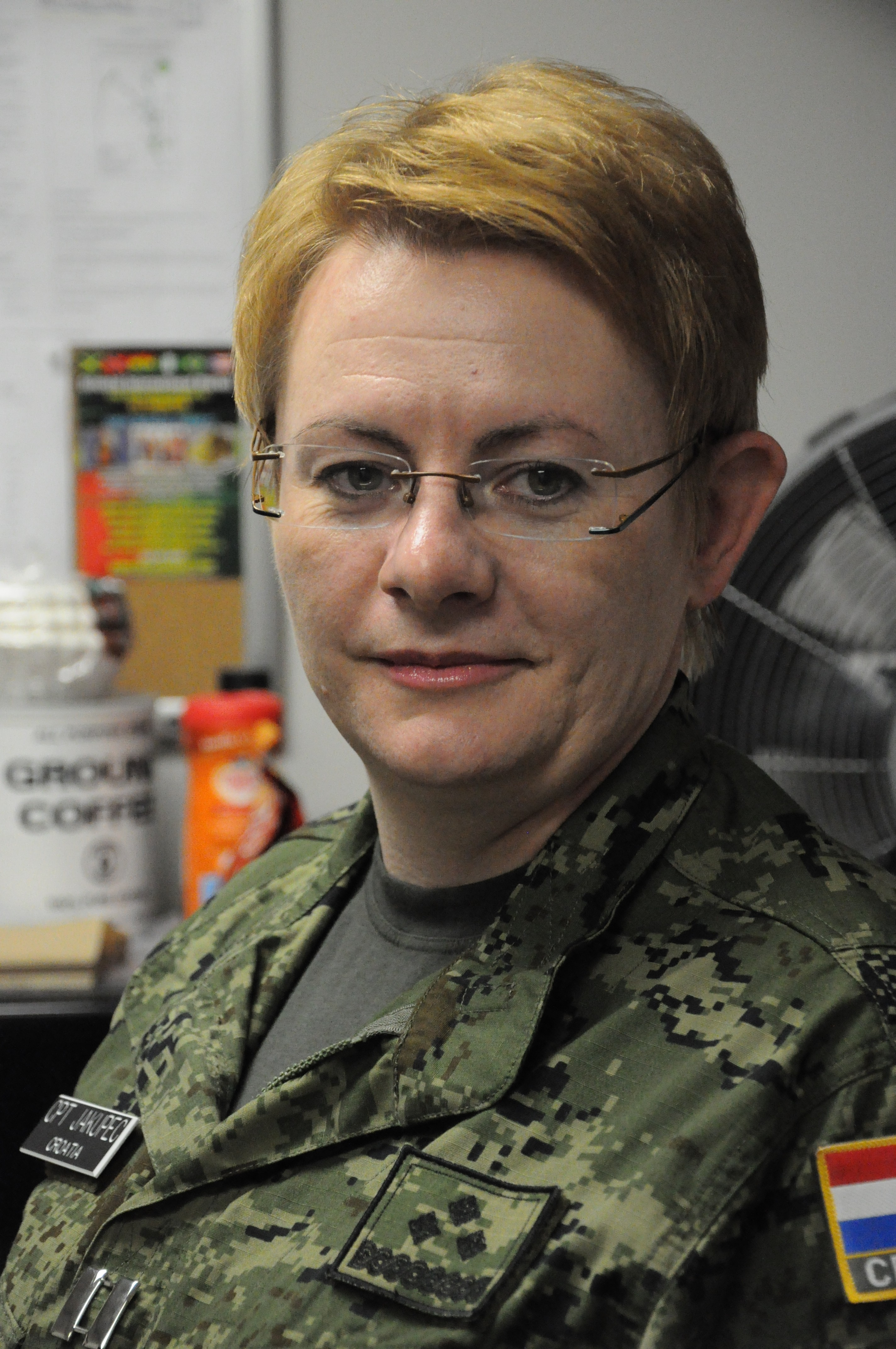
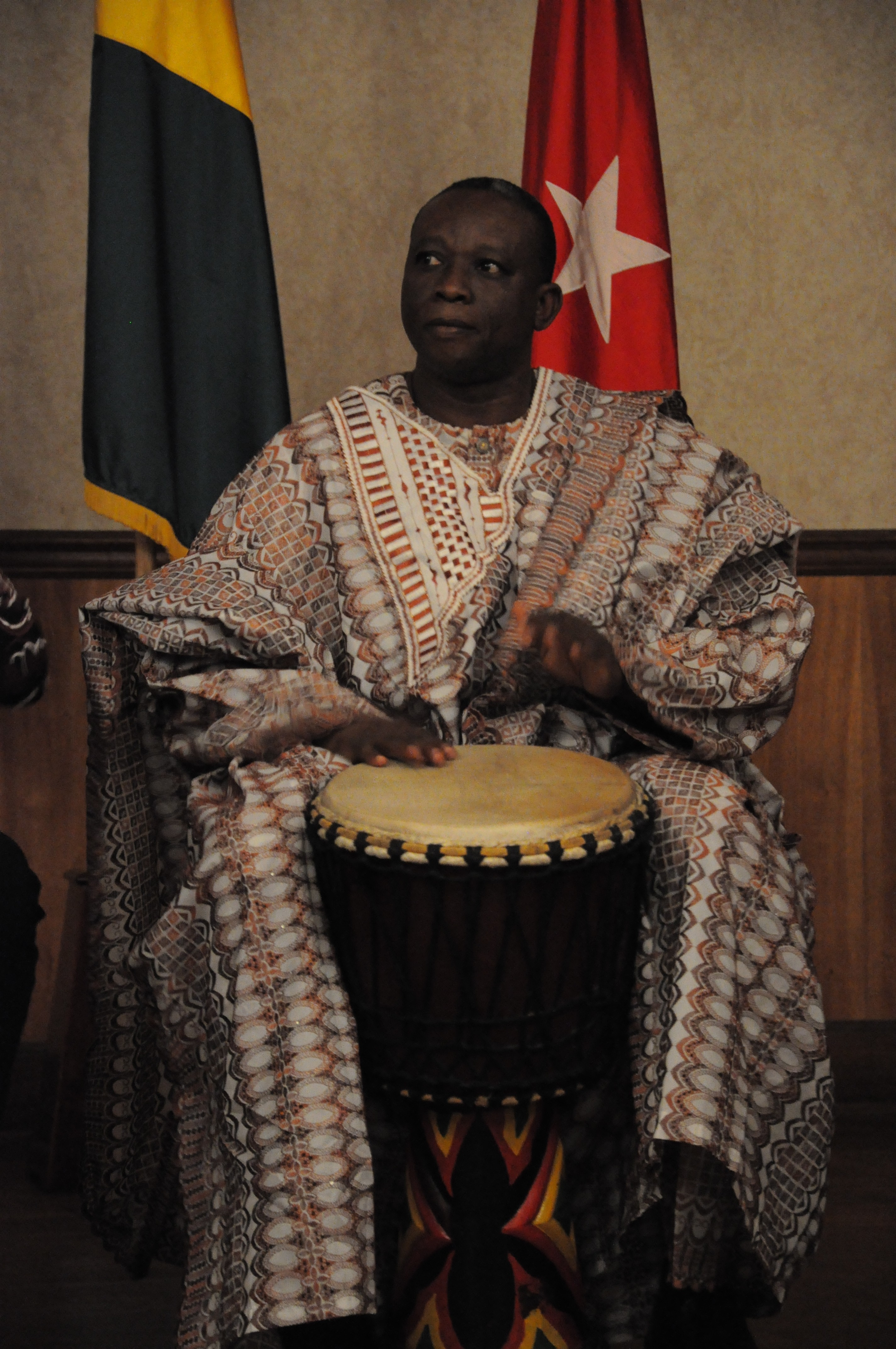
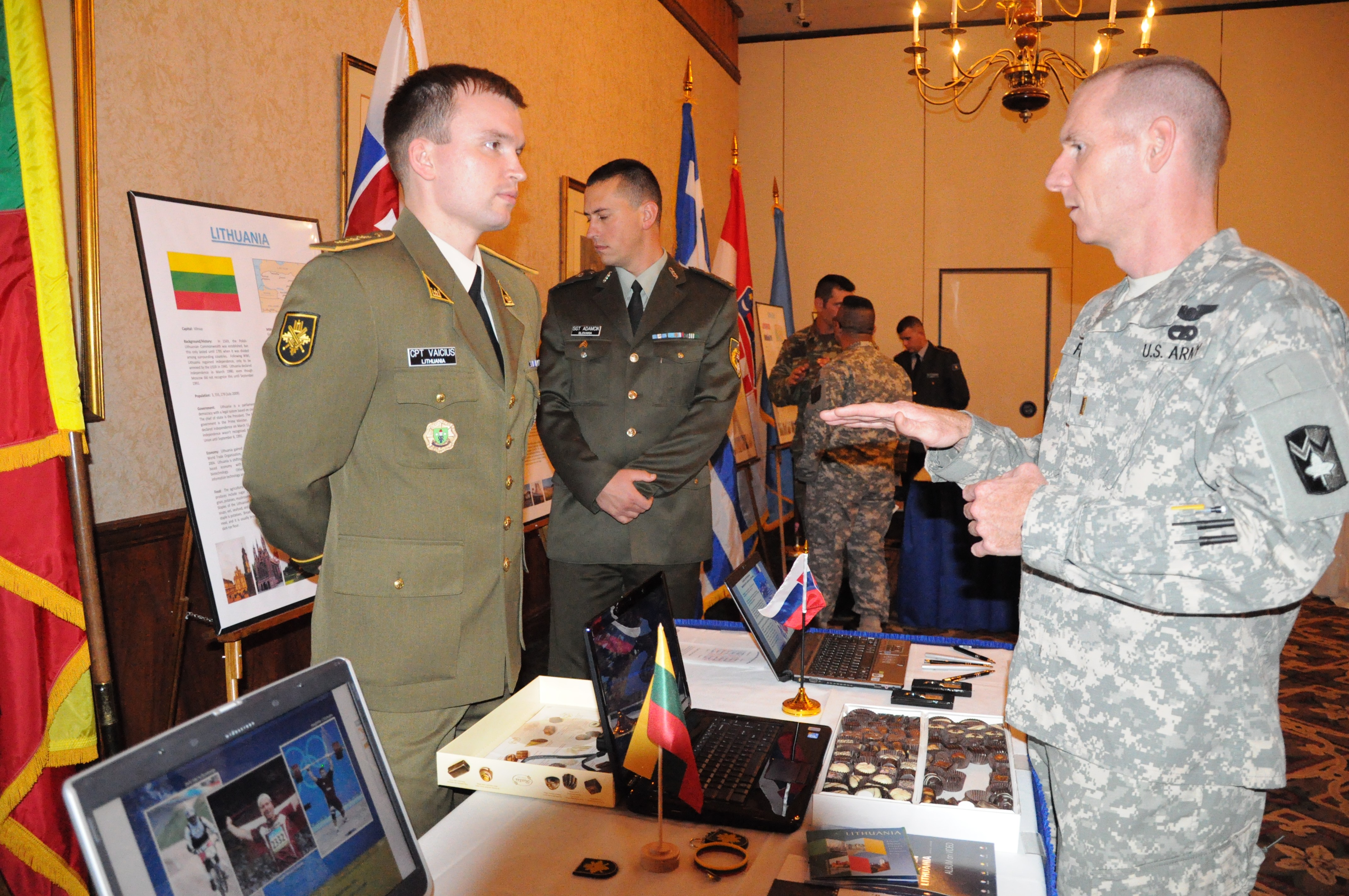
Social Sharing